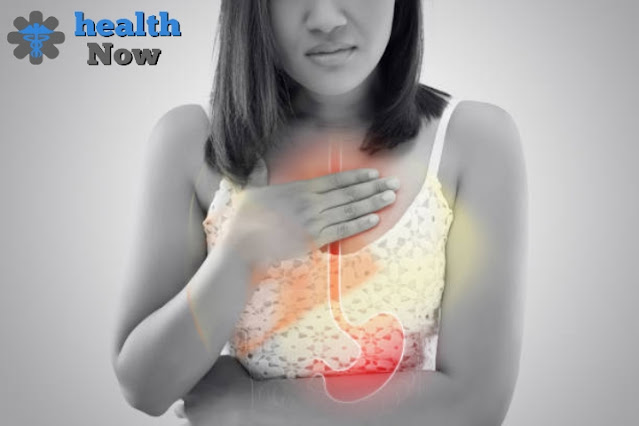What is acid gastritis?
acid gastritis is an intriguing obsessive condition portrayed by a heterogeneous penetration succession of acidophilus (GI) from the tissues of the gastrointestinal lot and was first depicted by Kaegiser in 1937. Its appearances might fluctuate contingent upon its area, as well as the profundity and degree of gastrointestinal divider association and it for the most part works In a constant course of backsliding.
We can group it into the mucous layer type and the serous muscle type, given the profundity of its intercession. It can influence any piece of the gastrointestinal parcel, and bile pipe association has likewise been accounted for. The stomach is the most incendiary organ followed by the small digestive system and colon.
acid gastritis is an intriguing obsessive condition portrayed by a heterogeneous penetration succession of acidophilus (GI) from the tissues of the gastrointestinal lot and was first depicted by Kaegiser in 1937. Its appearances might fluctuate contingent upon its area, as well as the profundity and degree of gastrointestinal divider association and it for the most part works In a constant course of backsliding.
We can group it into the mucous layer type and the serous muscle type, given the profundity of its intercession. It can influence any piece of the gastrointestinal parcel, and bile pipe association has likewise been accounted for. The stomach is the most incendiary organ followed by the small digestive system and colon.
Symptoms of acid gastritis.
- difficulty swallowing
- painful swallowing
- Chest pain, especially behind the breastbone, that you feel when eating
- The food you swallow gets stuck in the esophagus (food impaction)
- heartburn
- acid regurgitation
Signs of acid gastritis in infants and young children, especially those too young to explain their discomfort or pain, may include:
- Feeding difficulties
- growth failure
Most signs and symptoms of acid gastritis can be caused by several different conditions that affect the digestive system. See a doctor if the signs and symptoms are:
- It went on for more than a couple of days.
- Does not improve or does not improve with over-the-counter antacids.
- It was so sharp that it made eating difficult.
- She has flu signs and symptoms such as headache, fever, and muscle aches.
- Seek emergency care if you feel any of the following:
- Chest torment that endures longer than a couple of moments.
- Suspicion of food settling in the esophagus.
- If you have a history of heart disease and chest pain.
- Torment in the mouth or throat while eating.
- Shortness of breath or chest pain immediately after eating.
- Regurgitating in huge amounts, constrained heaving now and again, experiencing difficulty breathing in the wake of spewing, or retching Yellow or green release that seems as though coffee beans or contains blood.
Causes of acid gastritis.
acid gastritis is by and large grouped by the circumstances that cause it. Now and again, more than one variable might cause acid gastritis.
reflux esophagitis.
The valve-like structure known as the lower esophageal sphincter usually keeps the acidic contents of the stomach out of the esophagus. If this valve opens when it shouldn't or doesn't close properly, stomach contents may back up into the esophagus (gastroesophageal reflux disease).
Gastroesophageal reflux disease (GERD) is a condition in which acid reflux is a frequent or persistent problem. A complication of gastroesophageal reflux disease is chronic inflammation and damage to tissues in the esophagus.
eosinophilic esophagitis.
Eosinophils are white blood cells that play a key role in the body's response to allergic reactions. Eosinophilic esophagitis occurs when there is a high concentration of these white blood cells in the esophagus, often in response to an allergen (an allergen), acid reflux, or both.
In many cases, this type of esophagitis may be caused by foods such as milk, eggs, wheat, soy, peanuts, legumes, rye, and beef. However, conventional allergy tests don't accurately identify these inflammatory foods.
People with eosinophilic esophagitis may have other allergies that are not related to eating certain foods. For example, the cause is sometimes inhaled allergens such as pollen.
Lymphocytic esophagitis.
Lymphocytic esophagitis is an uncommon condition of the esophagus that involves an increase in the number of lymphocytes in the lining of the esophagus. Lymphocytic esophagitis may be associated with eosinophilic esophagitis or gastroesophageal reflux disease.
drug-induced esophagitis.
Many oral medications may cause tissue damage if they remain in contact with the lining of the esophagus for a long time. For example, if you swallow a tablet with little or no water, the tablet itself or part of it may remain in your esophagus. Medications associated with esophagitis include:
- Torment soothing meds, like headache medicine, ibuprofen (Advil, Motrin, others), and naproxen sodium (Aleve, others)
- Antibiotics, such as tetracycline and doxycycline
- Potassium chloride, which is utilized to treat potassium lack
- Bisphosphonates, including alendronate (Fosamax), a treatment for weak bones (osteoporosis)
- Quinidine is d to treat heart problems.
infectious esophagitis.
A bacterial, viral, or fungal infection in the tissues of the esophagus may lead to esophagitis. Infective esophagitis is a relatively rare disease that often occurs in people with compromised immune systems, such as those with HIV/AIDS or cancer.
A common cause of infectious esophagitis is a fungus commonly found in the mouth called Candida albicans. These infections are often associated with poor immune system function, diabetes, cancer, or the use of steroid medications or antibiotics.
Is eosinophilic gastroenteritis curable?
Indeed, gastroenteritis is frequently treated all alone, particularly when the reason is viral and doesn't need any drug.
If bacterial, the patient is given a suitable anti-toxin as per the kind of microbes he has.
It ought to likewise be referenced that no enemy of looseness of the bowels is utilized, as this builds the span of contamination.
Acid gastritis treatment.
Treatment of gastritis depends on determining its cause. Acute gastritis caused by NSAIDs or alcohol may be relieved by stopping the use of these substances.
- Antibiotic medicines to kill the H. pylori bacteria. When treating H. pylori bacteria in your digestive tract, your doctor might recommend a combination of antibiotics, such as clarithromycin (Biaxin), amoxicillin (Amoxil, Augmentin, others), or metronidazole (Flagyl) to kill the bacteria. Be sure to take the full prescribed dose of antibiotics, which usually lasts 7 to 14 days.
- Medicines that block acid secretion and stimulate healing. Proton pump inhibitors reduce acid secretion by inhibiting the activity of parts of the cells that secrete it. These include prescription and over-the-counter medications, including omeprazole (Prilosec), lansoprazole (Prevacid), rabeprazole (Aciphex), esomeprazole (Nexium), dexlansoprazole (Dexilant), and pantoprazole (Protonix).
- Long-term use of proton pump inhibitors — especially in high doses — may increase your risk of fracture of the hip, wrist, and spine. Ask your doctor whether taking a calcium supplement might reduce this possibility.
- Acid-reducing medications. Acid blockers also called histamine (H-2) blockers, reduce the amount of stomach acid released into the digestive tract, relieving gastritis pain and promoting healing. Both prescription and over-the-counter acid blockers include famotidine (Pepcid), cimetidine (Tagamet HB), and nizatidine (Axide AR).
- Antacids that neutralize stomach acid. Your doctor may include an antacid in your medication regimen. Antacids neutralize the stomach acid present and can relieve pain quickly. Its side effects include constipation or diarrhea, depending on the active ingredients.
Eosinophilic gastroenteritis natural treatment.
Some alternative medicine treatments can provide control of eosinophilic esophagitis symptoms, such as reflux or heartburn.
These treatments include the use of some herbs, including licorice, red elm, and chamomile. However, it should be noted that some of these herbs have side effects, or interfere with medications, and therefore it is necessary to consult a doctor before starting any herbal treatment.
Techniques to relieve stress and anxiety can reduce symptoms of eosinophilic esophagitis, such as progressive muscle relaxation or guided imaging.
Acupuncture helps people with heartburn. In this procedure, a thin needle is inserted into specific areas of the patient's body.
Living with eosinophilic gastroenteritis.
Some procedures help reduce the symptoms of eosinophilic esophagitis, including maintaining a healthy weight, because weight gain puts pressure on the abdomen, and thus the abdomen rises.
As a result of this, the acids return to the esophagus, so losing excess weight helps relieve symptoms, and the loss should not exceed one kilogram per week, with the need to consult a doctor to develop an appropriate strategy to get rid of the extra weight.
Elevating the head of the bed can help those who suffer from persistent heartburn at night, or when lying down to sleep.
Gravity is used in proportion to the patient, who places blocks of wood or cement under the oldest bed, which makes the end of the bed raised from the side of the head.
Replace the raising of the bed, especially when it is not possible to do this, by inserting a piece of sponge between the mattress and the bed so that it raises the body from the waist up.



